Horst Schulze
Birth : 1921-04-26, Dresden, Germany
Death : 2018-10-24

In the middle of the road on Potsdamer Platz, Berlin's heaviest tourist attraction and as close to Times Square as Germany will ever get. How they manage to "do it" there is Zarah's idea, a postmodern creative artist, who likes doing it with Anton in the most quaint and daring of public places - right where and when the traffic is the heaviest. This time, to heighten the fun, Zarah hits upon a special object of desire . . .

Opa Frank
When a World War II bomb with two days to detonation is found in Berlin, Alex and his wife must work quickly to solve a 40-year-old puzzle.
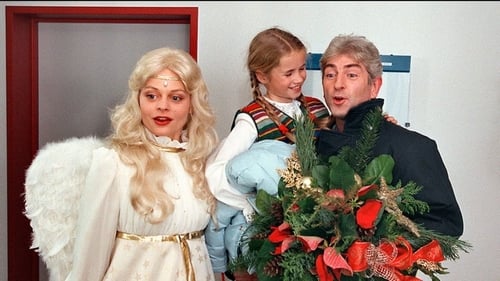
Egon Kirsche

Dr. Falke
He could have had women, he could have climbed the ladder of his accountancy career, and he could have stood on the podium next to the highest in the land. If only he had wanted to! But Farssmann, shaken by divorce and unwilling to better himself, wants to remain what he is: an ordinary bookkeeper like you and me. And so the dollar deal with Mr. Osbar from Utah (USA) is not the first time he comes into conflict with the very palpable unreality of a country called the German Democratic Republic.
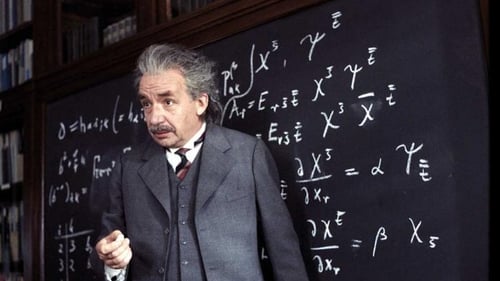
Prof. Stark
Two part movie about Einstein's escape from Germany in 1932 and his influence in the invention of the nuclear bomb in 1939.

Alfred Schramm

Gustav Huber

Hennings Großvater
A village has to be destroyed for coal mining. Henning, a 15 years old boy, who wants to visit his grandfather one more time, realizes that nothing will be the way it used to be.
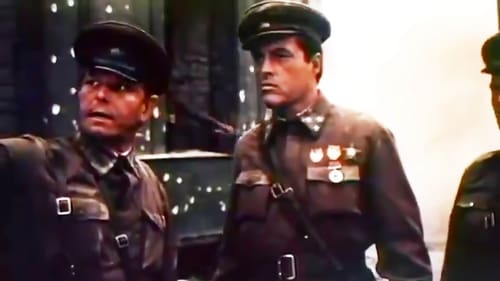
Erich Schulze
The WWII pivotal battle of Stalingrad is shown through the eyes of the soldiers and officers on both sides of the war.

Professor Kittguß

Lydia Kowalenko is fired from the pharmaceutical company where she has worked for many years because she refused to help cover up the use of a dangerous chemical. Her daughter Katja, however, has no scruples and risks an operation which is more beneficial to her own medical research than to the convalescence of a young patient. Then Katja's only son dies after a car accident. Was he too the victim of a career-minded doctor?

Schmuckstein
The story of a young German boy and his father who befriend a Jewish family during WWII.

Lepetit
On a forest road in the Brandenburg March, village teacher Potsch accidentally encounters the distinguished Professor Menzel, who got stuck there in his car. In the conversation that ensues, Menzel and Pötsch quickly discover that they both are great admirers of the early 19th-century writer Max von Schwedenow who was born in the area.

Krantz

Leibniz
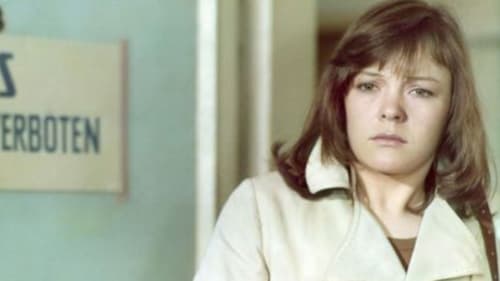
Verkaufsstellenleiter
Scenes from an East German marriage. A young couple, Sonya and Jens, are very much in love; they get married and have a child. When Sonya wants to go back to work after her maternity leave, they clash for the first time; Jens insists that she remain a full-time wife and mother. Until Death Do Us Part turns an actual police report into a gripping drama, as the director explores the depths of his characters' emotions, driving the conflict to a catastrophic climax.

Zinn
After a fierce argument Steffi Zinn′s husband leaves the joint flat and stays away from home over night. The next morning, his wife Steffi has disappeared and is reported as a missing person. Captain Lohm takes over the case and at first looks for signs of a murder, but to no avail. Then, Steffi′s body is found in a lake. After her funeral, a stranger who had attended Steffi′s funeral for a short time is also found dead in a lake, and the connection between the two cases becomes apparent.


general
A first episode in the trilogy about the Russian partisan's resistance against the Nazi occupation of Russia during WWII. The film is set in August of 1941, when the Nazi forces invaded and occupied the European part of Russia. Major Mlynsky is in charge of the special group of partisans. His group is absorbing other small groups of Russian soldiers, who managed to survive from the attacks of the overwhelming Nazi forces. The Nazi Armies are advancing to Moscow. Major Mlynsky is organizing the Russian partisan's resistance against the Nazis, behind the enemy lines.

Eduard and Charlotte live an isolated and idyllic life together. But soon Eduard feels that something is missing and he invites his friend Otto to come stay. Charlotte, meanwhile, decides that her foster daughter Ottilie should come live with them. Complex and passionate relationships between the four people begin. Based on Goethe's novel of the same title.

Adaptation of Antoine de Saint-Exupéry's novella for East German television, produced in 1965/66, not shown until 1972.

Makeup Artist
In this East German film, the third one in The Third is Margit's third lover. After her mother's death, Margit has two affairs which don't work out, and one lesbian friendship which she retains. She is looking for a husband, though, and thinks she has spotted a candidate in her fellow factory worker. As she contemplates marrying him, her story is told in a series of flashbacks.
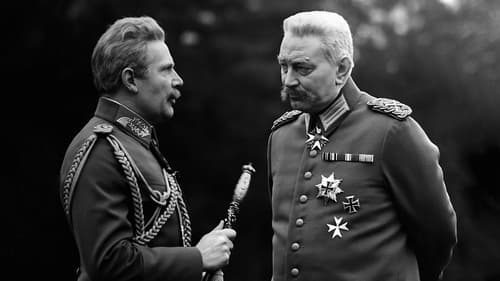
Karl Liebknecht
October 1918: Karl Liebknecht is released from prison and Berlin workers celebrate his release. Although WWI is almost over, the German Kaiserreich in vain sends its last reserves to the slaughter. The working class is in a rebellious mood; the uprising of Kiel’s sailors against war and militarism sets off a call for revolution led by Liebknecht. On November 9, Liebknecht declares the Free Socialist Republic of Germany. But pro-Kaiser military and right wing Social Democrats oppose him.

William Raynes
Florida, 1830 - Of all eastern Native American tribes, only the Seminoles have resisted being moved to reservations. Having retreated to Florida, they live a simple horticultural life. But white plantation owners, angry at the increasing numbers of black slaves fleeing to Seminole protection, want to take their land. Plantation owner Raynes, in particular, has convinced the military to wipe out the Seminoles. His rival Moore, a sawmill owner from the North who has a Seminole wife, is against slavery and considers it unprofitable. Chief Osceola sees the coming danger; he tries to avoid provoking the whites, but cannot prevent the war that breaks out in 1835.

Adam Kuckhoff
East German film about the history of Red Orchestra, a real life German pro-Soviet spy ring created after the rise of Hitler that turned into a resistance movement led by a leftist Nazi officer, Harro Schulze-Boysen, and Arvid Harnack.

Innstetten
In the nineteenth century, seventeen year old Effi Briest is married to the older Baron von Instetten and moves into a house i that she believes has a ghost.

Collins P. Harrington
Farsighted Falcon, chief of the Lakota, seeks refuge in the Black Hills with his wife Blue Hair and two warriors, sole survivors of their tribe. When they are attacked by the outlaw Bashan, Falcon strikes out for the town of Tanglewood to take on Bashan's boss, mining magnate Harrington.

Justizrat Walter
A Saxon village in 1792: While the Prussians go against France, the haymaking takes place in the village and the resolute Marthe catches her daughter Ev with the village blacksmith Ruprecht in the hay.
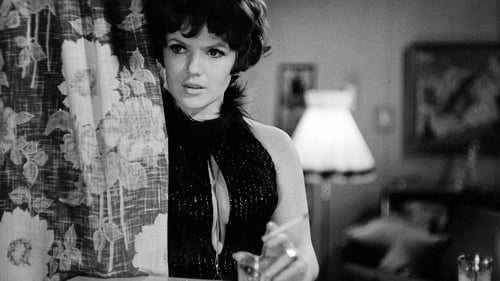
Dr. Ingo Vogelsang

Posnansky

Verteidiger
Film by Wolfgang Luderer.

Four directors - four styles - four episodes, all relating the events of a single night which has entered the history books: August 12-13, 1961. There are thousands of complex narratives connected with the frontier drawn through the middle of Berlin, and each episode relates the story of a difficult decision made on that night...

Becher
In 1944, SS-Obersturmbannführer Becher arrives in Budapest in order to obtain material for the Waffen-SS. At the same time, he starts to gather private property by offering an insidious choice to the corporation′s Jewish majority shareholder, Dr. Chorin: Either Chorin assigns the company to Becker "on his own free will" – thereby obtaining the permission to travel abroad - or he his family will end up in an extermination camp.

Karl Liebknecht
This is part one of a two-part biopic about Karl Liebknecht. In 1914, Germany is arming itself for war. Karl Liebknecht, left-wing revolutionary Social Democrat, workers’ leader and a virulent antimilitarist, is one among 110 SPD members of Parliament who vote against approving war loans. From then on, he is considered un-German and a traitor to the fatherland, and his own party’s leadership turns against him. Despite threats, Liebknecht speaks up against the war and writes the manifesto “The Main Enemy Is at Home.” Even when he is arrested and charged with treason, he does not surrender.

Georg Kirchner
Ella Conradi, a dedicated journalist from Germany, is in Jerusalem to report about the trial against the Nazi criminal Eichmann. Disgusted by the monstrosities that are revealed, she eventually returns to Germany. There, she wants to cover common cases and trials again. Her first assignment is a murder trial against a man called Ralf Jordan who constantly maintains his innocence. Conradi, who believes Jordan and wants to help him, starts to investigate the case - and thus opens up a political can of worms. The backgrounds of the case reach back to the Nazi period and involve officials of the Third Reich, who in the meantime have returned to their powerful positions.

Eugen Breuer
Christine is a young farm worker in a small village in post-war Germany. Her attempts to improve her situation through further education are hampered by frequent pregnancies arising from ill-fated relationships.

Film by Richard Groschopp.

Ed Quinlan

Narraror

Uwe Angler

Makeup Artist
At the end of the 1950s, the production of optics in the German Democratic Republic has reached top quality and instigates interest in the West. When national demand rises strongly and at the same time the export to South America heavily decreases, the Volkspolizei - the GDR police force - starts to look into the case. Two seemingly unrelated cases are the starting point for the investigation by second lieutenant Schellenberg of the department for optics racketeering: An old woman who was arrested in the Berlin city railway for trying to smuggle a pair of binoculars to West Berlin, and a dead person in an area of allotments who was involved in obscure dealings with optical devices.

Graf Appiani


























